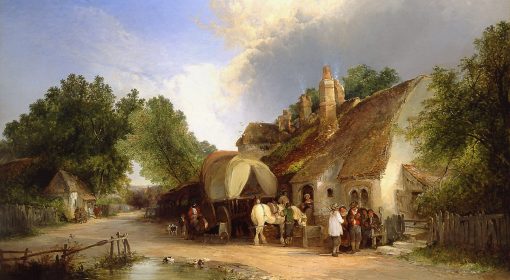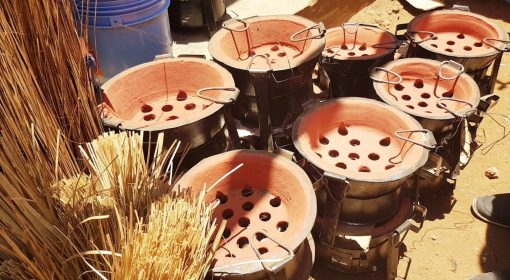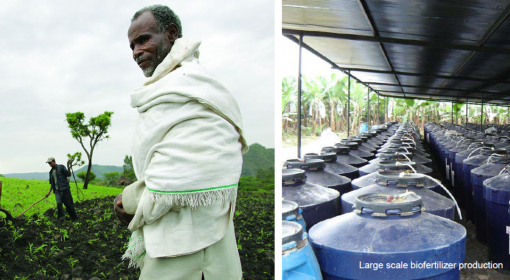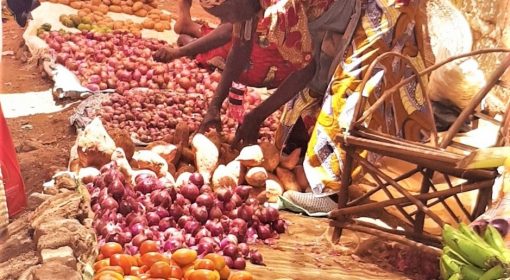By Frank van Steenbergen (MetaMeta) and Saheb Bhattacharya (PRADAN)
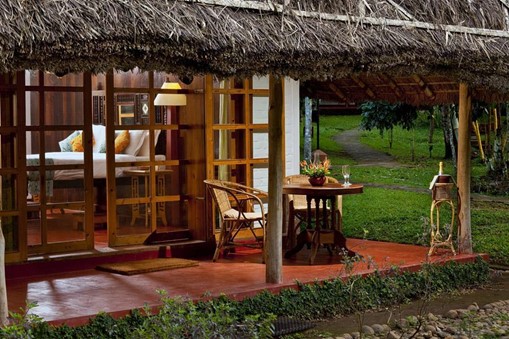
First, a story with a traveler.
One evening a traveler arrives in a small town in rural India. His plan is to reach his family in the main city. Yet it is late and he does not like traveling at night. He knocks the door of a small town hotel and asks the owner if there is still a bed for the night. “There is”, the owner says, “but because you will leave early morning, would you mind paying in advance?”, he asks. And so it so happens. The traveler pays INR 1500 and retreats to his room.
As soon as the hotel owner has the money, he goes to the beer brewer who supplied it to his hotel. I still owe you INR 1500, the hotel owner tells the brewer. Now I come to pay you. With the payment from the guest, the local beer brewer runs to the barrel maker. You made this new barrel for me and I did not pay you yet, but here is your payment. The next step is for the barrel maker to go to the dress maker. “Remember you made the dresses for my daughter’s wedding and I could not pay you?” says the barrel maker. “Here is USD 1500,” the barrel maker says. “Please accept it as a first payment.”Thanks”, says the dressmaker, who goes to the hotel owner. “I have been eating here for many nights and I owe you this INR 1500. Please accept.”
At that time the traveler comes to the reception. “My family called me,” he tells the hotel owner. “I think it is better if I proceed and travel home tonight.” “I understand,” says the hotel owner. “Would you mind giving me the advance back?,” asks the traveler. “Of course,” says the hotel owner.
So this what money is about: a medium that goes around and that helps us to connect and exchange services and goods. The more the variety of goods and services locally the longer the chain in which money moves around. If no one brews beer, we will not spend money on it, nor are their brewers who may purchase things. If there is no barrel maker, then nobody will produce the useful barrels and no one will spend the money that is earned with making barrels. The economy will not roll. Same with the dress maker: if there is no one to make wedding dresses, weddings would be less exciting, but also no one would be able to spend the money that was earned with making the dresses. And so on and so forth. This is why diversity is important. It is a large driver in any economy. It is what creates the circulation, a continuously increasing web of services and products– with money being earned and spent. In the process, more jobs are created locally, there is a higher quality of services and lives are better.
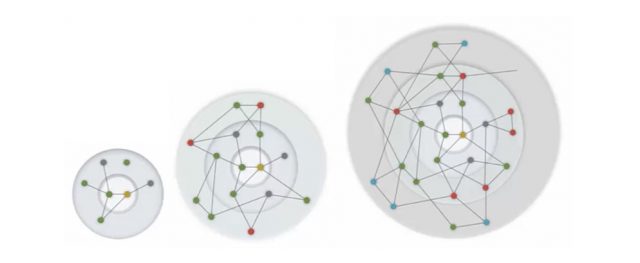
Diversity is not a given. Not every area has the same dynamism. In one area there may be a range of business and services, in another area little is happening. In the first area there may be hardware shops, food processors, transport business, input suppliers, financial service providers and more. In the second area the local economy is stale and all there is typically only general food stores and pharmacies. There could be many other types of useful business and services in the last area, but they are simply not there. It is not that there is no demand, and the local business is not viable. The services and the businesses are just not there and money cannot circulate. Causes can be many: competition from the public sector or outside business, regulatory constraints, export without value addition, no tradition of entrepreneurship. But an overriding reason usually is that the variety of services does not exist because no one started to create them. This is then the Big Paradox: on the one hand we have a lot of useful things that are not done, on the other hand we have many unemployed and underemployed people that are without income, frustrated, if not in despair.
Fortunately there is a Promise too in this Paradox. By increasing the web of local good and services, we can create stronger circular local economies. In strengthening circularity, we can have more jobs, a higher level of services and more well-being.. Diversity is often better than quantity – as competition means choices and diversity means additional options and added value. We think this local circular growth model is more appropriate for many parts of rural India, that have little to offer on global or regional markets, but have the potential for much more local interaction.
Regenerative agriculture can be a catalyst. In regenerative agriculture there is a large scope for such diverse local services: in making bio-inputs, in better storage and transport, in protection crops from rodents and pests, in vaccinating livestock, in producing local seeds and seedlings, They all help farming from being degenerative (depleting soils, reducing biodiversity, polluting water, high wastage). They also make money go around.
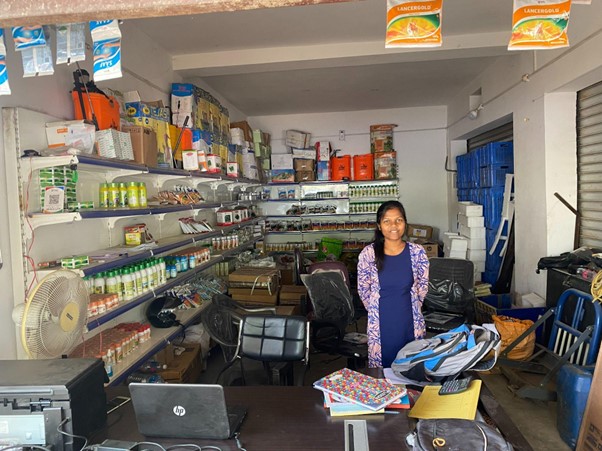
As such regenerative agriculture can address the Big Paradox and Promise in many remote economies. We need to look at the inner strength of local economies, rather than the external linkages. There needs to be more interest in economic theory in availability and circularity rather than competition. One should look at producers and customers not as separate entities, but consider that he/ she who is a receiver will also be a giver. We need to understand better how to promote this local diversity and circularity.
Here are some avenues:
- Invest in diversity of agriculture related skills and services – through training, contacts and contracts. Many rewarding opportunities exist in agri-services, in particular providing inputs for regenerative farming as well as in adding value to the produce. After all, farming is the main activity in rural areas, and needs to be dynamic and rewarding. Creating a service sector around it will enrich the economy and create aspirational jobs. There are many good starting points already with producer organizations and bio-resource centers.
- Go further in promoting local economic diversity. Make sure that what can be spent locally is spent locally and that the venues for this are there: in local shops, construction work, entertainment, the production of local luxury items and more. Where possible make sure inputs are produced locally rather than sourced from outside, and that things are done with attention, beauty and care, as this all creates work opportunities.
- Fuel up the local economy. Through local procurement of goods and services in large public programs we may inject money in the local economy. There have also been ideas in MNREGA to give cash grants to needy people. This may be expected to boost the local economy and as such have a ripple effect on poverty alleviation.
- Stimulate other sources of money: local credit systems at preferably low interest, so that it is accessed without complication and goes around easily
- Local money? This may sound far-fetched but over the years there have been encouraging experiences with local currencies. This is money that can only be spent locally These may take different shapes, like special vouchers or phone credits, sometimes with a time-limit so one is encouraged to spend it quickly on others and not store it away. We may want to experiment with such local circulation systems.
- Be mindful of spoilers – public organizations and cooperatives providing low quality hand-out items that stand in the way of more vibrant and creative local business providing local products
- Understand regulation – regulation is good but sometimes works to dampen local enterprise. There are many regulations that support local circular growth: the organization of markets, land allocation of small business, the organization of supply lines and public procurement.
- Having adequate local roads and transport, so as to wire the local economy and keep all connected. A good road network may ease the effort to provide a local service and create opportunities for otherwise marginal inputs, such as agricultural by-products
- Promote entrepreneurship – the ability to seize opportunities and having the reserves to do so; to think that one can take things in one’s own hand, that one can create something new. This is a matter of mindset and providing support and opportunities.

